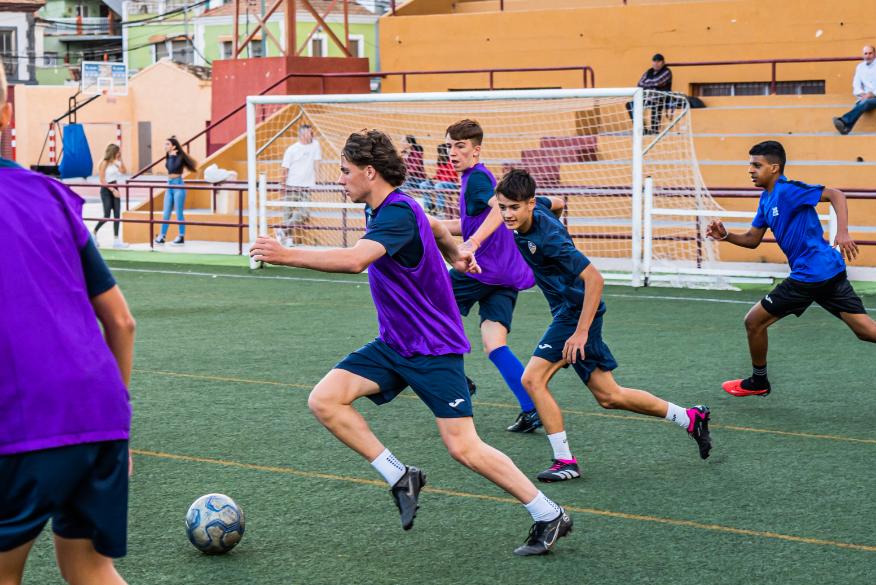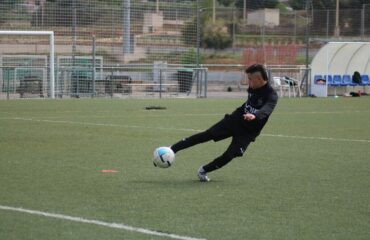Motivation as an essential area in the development of young footballers

Motivating a soccer player during his formative stage is crucial for several reasons, mainly because of the significant impact on his personal and sporting development. Motivation is essential for the growth and success of a soccer player, as it directly affects his physical, emotional and social development, as well as his performance on the field.
It is important to note that motivation in soccer players can be complex and influenced by multiple interacting factors. In addition, a player may experience different types of motivation at different times in his or her career or sporting life.
In the SIA Academy annual program, in addition to the technical and physical focus, we work on the psychological aspect of each soccer player. We adapt the motivational situation of our players to their own personality, needs and sporting situations with which they live during their stay in our soccer academy.
What reasons related to motivation may be key in the development of male and female soccer players?

1. Skill development and performance: Motivation can drive young soccer players to work harder in their training and matches. When motivated, they are more likely to practice regularly, strive to improve their skills and perform better on the field.
2. Resilience: The world of sports, including soccer, is full of challenges and obstacles. Motivation helps young soccer players develop resilience, the ability to overcome difficulties and stay focused on their goals despite setbacks.
3. Self-esteem development: Positive motivation contributes to the development of self-esteem. When young soccer players feel supported and recognized for their efforts, they have more self-confidence, which positively influences their performance and attitude towards the game.
4. Fostering passion: Motivation can fuel a passion for football. When young people experience the satisfaction of achieving goals and enjoy the process of improvement, they are more likely to develop a lasting passion for the sport.
5. Teamwork: Motivation not only applies at the individual level, but can also influence teamwork. Motivated young people tend to collaborate better with their teammates, which contributes to a positive atmosphere and strengthens relationships within the group.
6. Mental health: Motivation is also linked to mental health. A motivated young footballer is more likely to experience higher levels of emotional well-being and better manage the stress associated with sports performance.
7. Goal setting: Motivation helps young people set and pursue goals. By having clear goals, players can focus their efforts and work more effectively towards achieving those goals.
What types of motivation can we find?

1. Intrinsic motivation: It comes from internal and personal factors. The player finds satisfaction and enjoyment in the very act of playing football.
- Example: A player who loves the game itself, enjoys the challenge of improving his skills and finds pleasure in competition.
2. Extrinsic motivation: Stems from external factors, such as tangible rewards or external recognition.
- Example: An extrinsically motivated player may be driven by awards, recognition, lucrative contracts or the desire to please coaches, family members or fans.
3. Achievement motivation: Relates to the desire to achieve goals and overcome challenges. Achievement-motivated players seek personal excellence and recognition for their successes.
- Example: A player who strives to be the top scorer in the league or to be recognised as the best in his position.
4. Social motivation: Derives from the desire to belong to a group, gain the appreciation of teammates, coaches, family members, or fans.
- Example: A socially motivated soccer player may find satisfaction in team camaraderie, connection with fans, or approval from loved ones.
5. Affiliative motivation: Similar to social motivation, it is focused on the need for connection and meaningful relationships.
- Example: A soccer player who values camaraderie and friendship within the team and is motivated by a sense of belonging.
6. Power Motivation: Related to the desire to influence and have an impact on the game, team or environment.
- Example: A power-motivated player may aspire to be a leader on the field, influence tactical decisions or be a prominent figure within the team.
7. Self-determination motivation: Refers to the ability to choose and control one’s own actions. Self-determined players have a sense of freedom and choice in their participation in the sport.
- Example: A player who feels he is in control of his own development and makes conscious decisions about his career.
In all our short- and long-term programs, such as our soccer camps and annual program, we offer different sports psychology workshops so that our players understand that taking care of their mind is as important as their body. A motivated soccer player not only plays with his feet, but also with his heart and mind, turning every game into an opportunity to shine.
In conclusion, motivation is not only a key ingredient in the success equation for a young player, but it is also the catalyst that transforms raw potential into tangible achievements.











